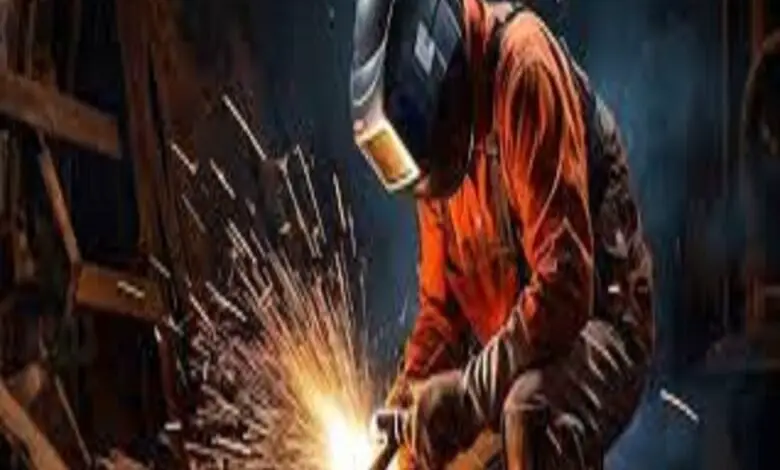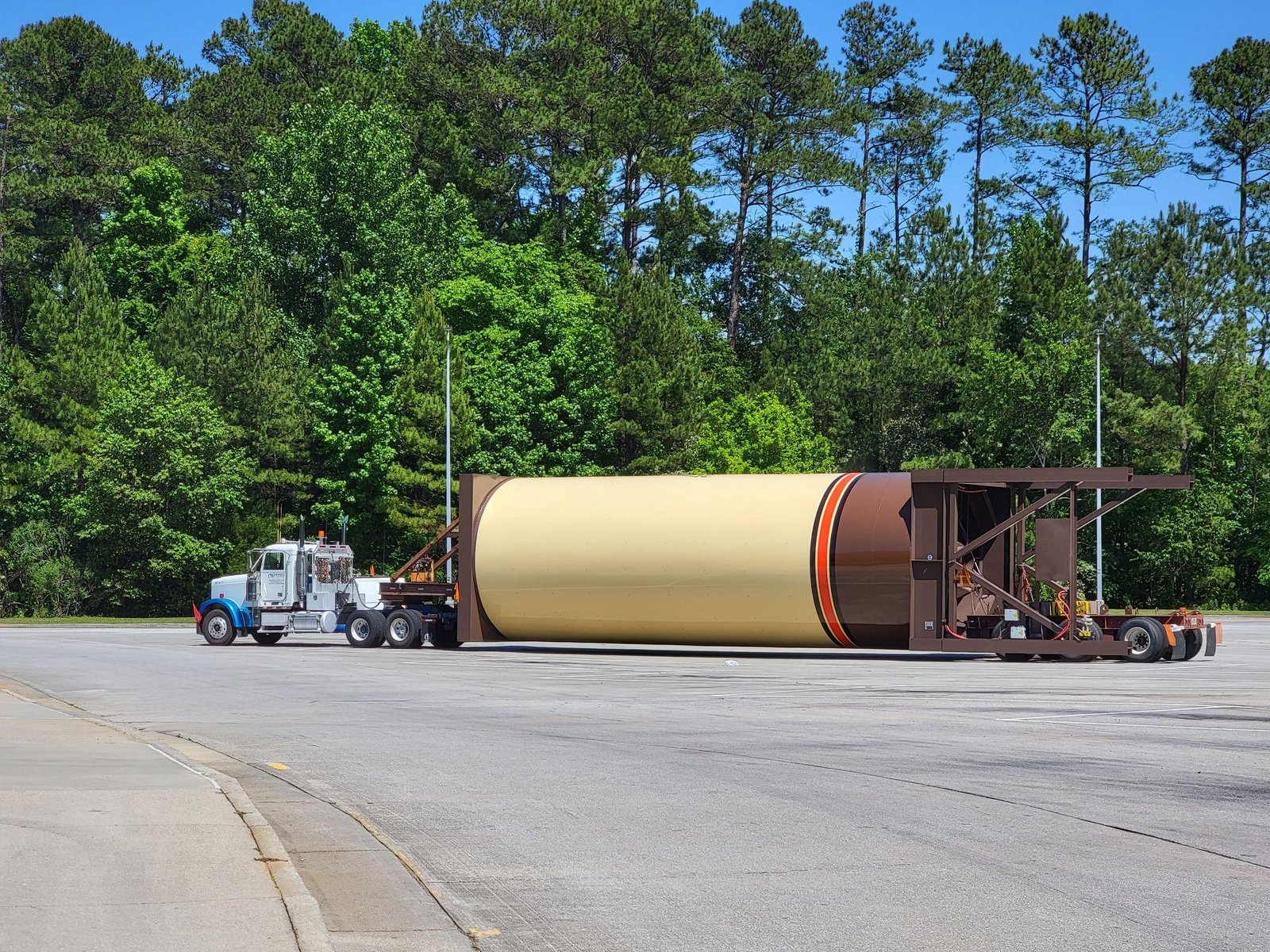Welding jobs in Canada – Fantastic guide 2023

Have you been dreaming of immigrating for Welding jobs in Canada? Your dream has come true because this guide will explain everything you need to know. you are bound to survive in Canada if you have the skill just like every other profession. The perfect time to make the decision is here as welders are in high demand in Canada.
For those who have had welding experience in their home nation, Canada is a popular choice. You and your family, if they’re coming with you, may have a lot of possibilities if you move to Canada with welding skills, given the great demand for welders and Canada’s continued policy of admitting talented workers!
Welders are in high demand. The need for skilled tradesmen like welders will also rise as the country’s blue-collar workforce ages.
Since the 1970s, trades as a potential career path have not received much attention in our high schools. As a result, the trades have long struggled to find talented young people.
A great job is welding because it pays well, allows you to use your hands, and makes you feel very proud of your work.
If you’re willing to relocate, welding jobs in the mining, oil, and gas sectors may pay well and present you with numerous opportunities.
One of the rare occupations that pay six figures without a college degree is this one! Advanced welders who are willing to travel and/or work under challenging conditions can earn well over $100,000 annually.
For example, the annual salary range for mobile industrial pipe welders is $50,000 to $185,000!
Ferrous and non-ferrous metals are joined by welders using welding equipment. Machine operators who employ previously set up production welding, brazing, and soldering equipment are also included in this unit group.
They work with companies that manufacture boilers, large machinery, ships, aircraft, and other metal products in addition to welding contractors and shops. They might also be self-employed.
Using welders, cutters, shapers, and other measuring equipment, welders construct metal structures and machinery. Welders will create metal products following client or business needs.
They use a variety of welding machines to maintain and repair metal equipment and structures of all sizes. To do their duties, welders also need to read and comprehend plans, drawings, and schematics.
SEE ALSO: Ultimate Guide On Data Scientist jobs in Canada in 2023
Welding jobs in Canada: job duties
All or some of the following duties are performed by this team:
Welders
- Specs or designs for the welding process should be read and understood.
- Use flux-cored arc welding, plasma welding, shielded metal welding, oxy-acetylene welding, resistance welding, and submerged arc welding techniques with manual or semi-automatic welding equipment to join metal pieces together (SAW)
- Use flame-cutting equipment that is either manual or automated.
- Use brazing and soldering equipment
- Make use of straightening and bending tools for metal, such as brakes and shears.
- Damaged metal product components can be repaired by welding additional layers on top.
- Welders might specialize in structural welding, pressure vessel welding, pipeline welding, bespoke fabrication, shipbuilding and repair, aerospace precision welding, and welding to repair machinery and equipment.
- Welding, brazing, and soldering machine operators
- Use pre-configured welding equipment, such as spot, butt, and seam resistance or gas and arc welding machines, to make or repair metal components.
- Use brazing or soldering equipment that has already been installed to connect metal components, or use solder to cover seams and gaps in metal objects.
- The ability to start, stop, alter, and monitor a robotic welding line.
- Help maintain and repair the welding, brazing, and soldering equipment.
- As needed for the job, they may change welding heads and tools.
Welding jobs in Canada: Job titles
- welder apprentice,
- an electric arc welder,
- a welder-fitter,
- a journeyman or lady welder,
- a brazing machine operator,
- a laser welder,
- a soldering machine operator,
- a production welder,
- a submerged arc welder,
- a pressure vessel welder,
- a welder.
Welding jobs in Canada: Skills
operating and maintaining vehicles, machinery, and other equipment
Help – Using and Maintaining Tools, Machines, and Vehicles
Building Mechanical Installation, Maintenance, and Repair Using Industrial Equipment
Help – Building
Analysis Inspecting and Testing Assistance
Restoring and Repairing
Construction
Help – Analysis
Analyzing information after inspection and testing
Using welders, cutters, shapers, and other measuring equipment, they construct metal structures and machinery.
Welders will create metal products following client or business needs. They use a variety of welding machines to maintain and repair metal equipment and structures of all sizes.
To do their duties, welders also need to read and comprehend plans, drawings, and schematics.
Canadian Welder Qualifications
Your credentials, education, and training to become a welder in Canada depend on where you wish to live. Typically, you will require the following:
- the three-year apprenticeship program, a secondary school diploma, or more than three years of professional experience (this is required in Alberta).
- Red Seal endorsement (obtained after completing the interprovincial Red Seal exam).
The NOC code for welders is 7237. For certified welders who want to live and work in Canada, this is fantastic news.
If you’re a welder interested in immigrating to Canada, your best options are the Federal Skilled Trades visa and the Provincial Nominee Program. Express Entry is not a visa class, but rather a method (or database) used by Canadian Immigration to select the most qualified applicants for permanent residency visas.
Welders from all around the world can apply for Welder Canada Residency through Express Entry, provided they meet the necessary standards for education, training, and experience in their native country.
To qualify for welding opportunities in Canada under NOC category 7237, candidates must have experience in one of the occupations listed on emigratecanada.com.
Express Entry
The targeted system for persons looking to immigrate to Canada as skilled workers are called Express Entry. A point system called Express Entry is used to rank applicants in the Express Entry pool. People can move for work purposes and, if welcomed, can establish permanent residency.
Applying through the Federal Skilled Trades Program would be the best course of action for welders using Express Entry. The Federal Skilled Trades Program is one of three economic programs in Canada that permit qualified individuals to be chosen to help meet the demands of the country’s workforce and would provide permanent residency.
Below are what determines your express entry score
- Age
- language ability
- working knowledge
Programs for Provincial Nominees (PNP)
PNPs, or provincial nominee programs, are an excellent way to relocate to a certain province or territory. A PNP enables a province to propose a qualified worker who satisfies the conditions established by the province for immigration to that province.
How much do welders make in Canada?
In Canada, the average salary for a welder is $25.50 per hour, or $49,062. Welders with business backgrounds and experience can make up to $41.40 per hour and $79,076 annually.
In Canada, the starting salary for a welder position is $18 per hour or $34,632 per year. Even though this might not seem like much, there are still other things to consider.
For instance, a lot of welders work independently or take on small side jobs. As a result, their pay may increase and occasionally approach the six-figure range.
The fact that welder pay in big cities is often lower than those in rural areas should not be forgotten.
It is worthwhile to look into welding jobs outside of major cities if you are okay with living in rural areas and want to make more money. Click here to learn more about the compensation for welder jobs in Canada.
Cities in Canada with more job prospects
Now let’s have a look at some Canadian cities with the best welding job possibilities.
Toronto, Ontario
The most southern city in the nation is Windsor, which is located less than 400 kilometers south of Toronto. It’s common to refer to the area as Canada’s automotive capital. Detroit, USA, just across the border from Windsor, is the hub of the North American automobile industry.
As a result, Windsor’s economy is mostly dependent on the manufacturing of auto parts. The production of automobiles necessitates a lot of welding, which is wonderful for welders. Welders can start their careers in Canada’s Windsor-Essex region.
What are the wages for welder jobs in Windsor-Essex?
In the Windsor-Essex region, welder positions pay an average of $22 per hour. This comes to about $42,328 a year. Welders who are newly hired in Canada typically start out earning $18 per hour, or $34,632 per year. Senior welders with more experience might make up to $45 per hour, or $86,580 annually.
Alberta’s Edmonton
With good reason, Edmonton is usually referred to as Canada’s “Oil Capital.” Oil and gas production has been a major factor in Edmonton’s economic success.
Manufacturing machinery for the oil and gas, construction, and agricultural industries is a specialty of Edmonton’s industrial sector. Unsurprisingly, there is a great demand for welders across all of these businesses.
Like the rest of the country, many welders working in Canada plan to retire soon. Immigrants will therefore have several options for beginning their welding careers in Edmonton.
What are the wages of welders in Edmonton?
In Edmonton, the average hourly pay for welding occupations is $36. That works out to a yearly salary of $69,264. Welders with less experience can expect to make $23.80 per hour, while those with more experience may make up to $45.45 per hour. That equates to an $87,446 yearly income for the other and $45,791 for the other.
It’s crucial to keep in mind that Edmonton has one of the highest concentrations of rig welders. Rig welders earn the most out of all welders because of the importance of their work. If you are able to get work as a rig welder anywhere in Canada, your salary will be far more than the sums shown above.
Hamilton, Ontario
More than just welding jobs are available in Hamilton, which is located near Lake Ontario. Hamilton has a significant amount of scenic beauty in addition to its iron and steel industries.
One of Canada’s major industrial hubs has recently emerged, and that is Hamilton. Many manufacturing and construction jobs can be found in Hamilton, which is known for its iron and steel industry.
Therefore, welder jobs are highly prevalent in and around the Hamilton area. Because Hamilton is so close to Toronto, many welders choose to begin or continue their careers there.
There are many welding jobs available in Hamilton, where there is a lot of construction activity. Welders wear protective face masks while welding.
The iron and steel industry is well-known in Hamilton, Ontario, where there are numerous welding possibilities.
How Much Do Welder Jobs Pay in Hamilton?
Hamilton’s welder salaries are comparable to the national average.
Hamilton welders make a median hourly wage of $25, which works out to a yearly compensation of $48,100. Welders just starting out may expect to make $18 per hour, or $34,632 annually. More experienced welders might make up to $30 per hour, or $57,720 annually.
British Columbia’s Vancouver
Undoubtedly, Vancouver is one of Canada’s most gorgeous cities. It features a stunning skyline and is on the Pacific coast. Mountains can be seen in the distance.
Additionally, it is one of Canada’s most expensive. Moving to Vancouver without having a job lined up beforehand is risky because of this. Although there are several opportunities for welders in almost every field, it is a good idea to find a job there first before relocating. Not at all.
Unless you have sizable funds that you can depend on, it is impossible to live in Vancouver for an extended period of time without working.
Vancouver is an excellent place to live if you can find steady welding job there. It provides a great quality of life, lovely landscape, and a variety of activities all across the city. It won’t be too tough to find work as a welder in Vancouver because the city has a significant manufacturing sector.
What Is the Wage for Welder Jobs in Vancouver?
The median hourly pay in Vancouver is $28, or $45,214 annually. Welders just starting out may expect to make about $22 per hour, or $53,872 per year. With additional experience, welders can make up to $43 per hour or $82,732 per year.
Vancouver is the highest cost city in British Columbia, but welders do not make the greatest money there. There are frequently higher wages available than in the areas close to Vancouver for welders willing to work there. If you don’t want to move to Vancouver before you get a job, this is a great option.
Toronto, Canada
Montreal is the largest industrial hub in Canada. The city is also regarded as one of the top three aerospace cities in the world.
Montreal is home to the principal offices of three organizations that are significant players in the aerospace industry: the International Civil Aviation Organization, Bombardier, and Air Canada. As a result, Montreal has a large number of manufacturing occupations, including positions for welders.
In Montreal, the manufacturing sector is expanding, and many welders who are currently employed are anticipated to retire shortly. Both new immigrants and high school graduates will be able to take advantage of several welding opportunities in Montreal as a result.
How Much Do Welder Jobs Pay in Montreal?
Due to the size of the city and its enormous labor force, the median wage for welder jobs in Montreal is slightly lower than the national average.
The average yearly salary is $45,214, or $23.50 per hour. Welders just starting out may expect to make around $17.50 per hour, or $33,670 annually. However, because salary increases for welders are often regular, new welders do not typically make their starting salary for very long. More seasoned welders might expect to make up to $38 per hour or $73,112 per year.
Profitable welding jobs are readily available in many Canadian cities, making this a career option worth exploring.
What are the ways to get Welding jobs in Canada?
Welding is a valuable skill in Canada, where the labor market is extremely easy, but there are other criteria, such as the capability of doing critical calculations to guarantee the quality of one’s work. Therefore, as a welder, you must complete the following tasks before traveling to Canada:
- Acquire an education in Welding
On the road to success, there will always be obstacles, and it takes the brightest minds in the field to figure out how to get around them.
In addition to improving your chances of success as a welder, formal education also makes you more knowledgeable and gives you an edge over your contemporaries.
- Take Part in a Training Program
You probably won’t be able to do a good job as a welder if you don’t have at least two to three years of welding experience.
Before a welder can be regarded as a professional, they must undergo both on-the-job training and classroom instruction.
The majority of people choose not to pursue formal welding education, despite the fact that doing so will demonstrate to potential employers that you are serious about your career.
Starting an apprenticeship is even more crucial because it might be challenging to find a welding career in Canada without one.
- Assemble your credentials connected to welding.
After completing your apprenticeship, the natural next step is to obtain your welding certification. However, if you attended welding school or received other welding training, you might already possess one. For welder training, enroll in a trade school or community college and graduate with the required abilities.
- Assemble the instructions for the certification exam you’ll be taking.
The written and practical portions of the exam will both require it, so if you haven’t accrued enough hours in the apprenticeship program, you’ll want to have some test-taking experience under your belt.
- Set a time for the exam, and do well.
You will be qualified to apply for welding jobs in Canada after fulfilling these standards, which is something that most people don’t accomplish before going there.
Before making any decisions, it’s also important to find out whether the provinces have an actual need for welders.
- Learn everything there is to know about the Canadian profession.
To free you up to concentrate on other parts of your transfer and relieve you of the administrative burden, your personal Welders Canada account manager will oversee the Red Seal equivalency process as part of your immigration to Canada.
If I don’t have a job offer, can I still receive a work visa for Canada?
If your Comprehensive Ranking System (CRS) score for Express Entry is high enough and you have 67 immigration points, then you are eligible to apply for a Canada Federal Skilled Trades Visa.
There are various job openings around the nation, and the welder’s code of 7237 has been firmly entrenched on the Canada NOC list for many years.
If you are a new permanent resident with specialized talents, you may begin working full-time in Canada as an employee, contractor, or single owner.
The significance of a good work-life balance is recognized by Canadian labor law, and welder jobs there typically pay higher than those in the United Kingdom, Europe, and Asia.
Additionally, although the word “union” may have bad connotations in some circles, it is a word that is frequently used in Canada. It has played a significant role in advocating for better working conditions and wages across the nation.
Emigrate Canada is well-equipped to handle not just your immigration paperwork but also to get you registered to work as soon as you arrive thanks to a dedicated Skilled Trades desk.
READ ALSO: What are the Available Jobs in Canada for Indians in 2023?





